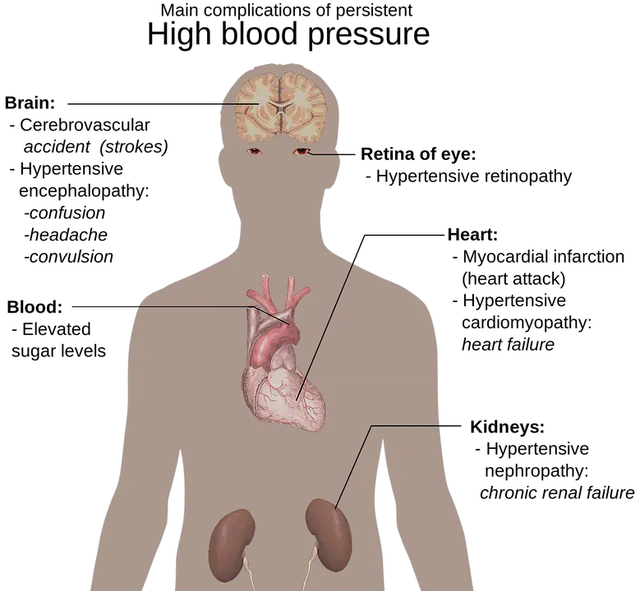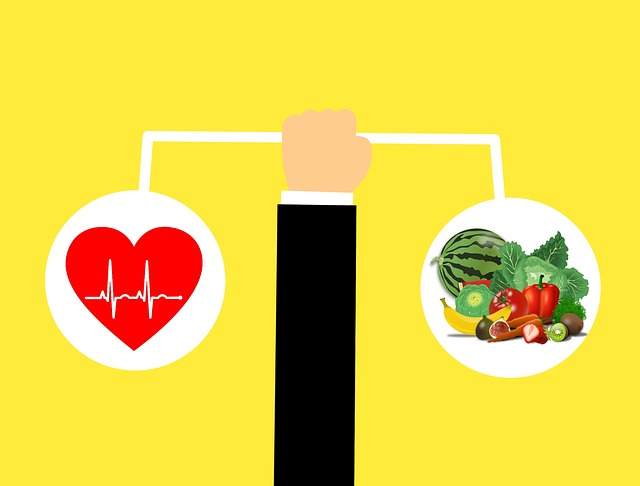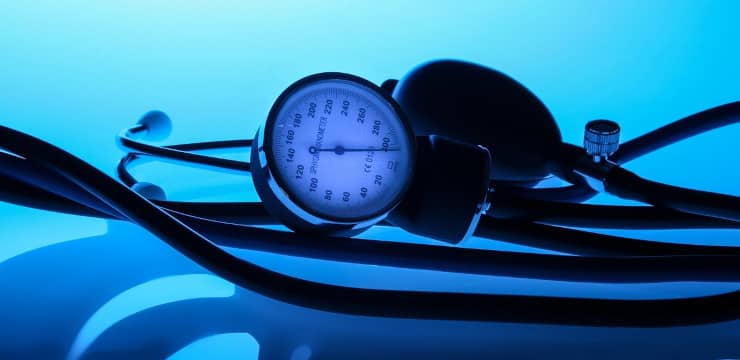Introduction
Here at “pressure pointers,” we considerably look at practical methods to lower blood pressure or any of your family members.
Blood pressure is the sizable amount of force your blood uses to go to your arteries, which happens 60 times to 100 times a minute for 24 hours a day.
Unfortunately, millions of individuals across the world suffer high blood pressure, commonly known as hypertension—which is a major risk factor for heart disease, stroke, etc.
You can take charge of your blood pressure chart and enhance your general wellbeing by including these straightforward yet effective and best easy recommendations to adopt into your daily routine. Here are ways on how to regulate your blood pressure.
Table of Contents
10 Pressure Pointers: Unlocking the Secrets to Maintaining Healthy Blood Pressure
1. Mindful Eating: Savor the Flavors, Control the Pressure
A balanced diet is essential for controlling your blood pressure. Adopt a conscious eating strategy by emphasizing whole, nutrient-dense meals and lowering your salt consumption. Include fresh produce, whole grains, fresh lean meats, and wholesome fats in your meals. These foods are a good source of antioxidants, vitamins, and minerals, all of which benefit cardiovascular health.
Keep processed food intake to a minimum and watch out for salt sources that are not readily apparent. Choose low-sodium or no-salt-added options by carefully reading food labels. You may lessen water retention and aid in blood pressure control by cutting back on your salt consumption.

2. Get Moving: Exercise Your Way to Lower Blood Pressure
Regular exercise is crucial for blood pressure control in addition to being good for your general health. Spend at least 150 minutes each week (50minutes x 3) on moderate cardiovascular activities such as brisk walking, jogging, running, swimming, playing the tennis, badminton, or cycling. These exercises are more highly recommended as it will 100% efficiently strengthen your cardiovascular system, raise your heart rate, and enhance blood circulation.
To further improve cardiovascular health, you can opt to do moderate strength training workouts two to three times each week if you don’t want to engage in jogging or any sports. Gaining muscle growth and improving overall body composition via strength training can help lower blood pressure.
3. Stress Less: Unwind for a Healthier Heart
Persistent stress can affect your blood pressure. Stress causes your body to generate chemicals that tighten blood vessels and raise blood pressure. Put stress-reduction strategies into practice throughout the day to combat this.

To improve relaxation and lower stress levels, try deep breathing techniques. Lower blood pressure results from using these approaches to engage the body’s relaxation response. A sense of peace may be produced, and stress levels can be further decreased by taking part in enjoyable activities like hobbies, outdoor excursions, Christian gospel music listening, and praying.
4. Maintain a Healthy Weight to Lower Blood Pressure
Keeping a healthy weight is essential for controlling blood pressure. Your heart and blood arteries are strained by excess weight, which raises your chance of developing hypertension. To encourage the best cardiovascular health, strive for a body mass index (BMI) that falls within the healthy range (18.5-24.9).
Focus on a balanced diet and regular exercise to reach and maintain a healthy weight. Include mindful eating, portion management, and regular exercise in your lifestyle. Long-term improvements in blood pressure can be achieved by gradually losing weight at a rate of 1-2 pounds per week.
5. Limit Alcohol and Quit Smoking: Break Free for a Healthier Heart
Smoking and drinking too much alcohol both have a negative impact on your blood pressure and cardiovascular health. Limit your alcohol consumption to moderate levels, which, for men and women, translates to no more than two drinks each day. Drinking too much alcohol increases blood pressure and can cause chronic hypertension.
Smoking also destroys blood arteries and reduces blood flow, which raises the risk of high blood pressure. One of the finest things you can do for your heart’s health is to stop smoking. To effectively stop smoking, seek the help of medical specialists, turn to nicotine replacement medications, or enroll in smoking cessation programs.
6. Monitor Your Blood Pressure Regularly: Knowledge is Power
Understanding your present levels and following changes in them requires routine blood pressure monitoring. Invest in a dependable home blood pressure cuff and check your blood pressure at least once every week.
Keep track of your readings and discuss them with your doctor when you get regular checkups. You and your doctor can use this information to make well-informed choices regarding your course of treatment.
7. Limit Caffeine Intake: Find Balance in Your Brew
Caffeine is typically safe in moderation for most individuals, but too much can momentarily elevate blood pressure. Reduce your intake of coffee, tea, energy drinks, soft drinks and other caffeinated beverages if you have high blood pressure or are caffeine sensitive. Choose decaffeinated substitutes, milk or herbal teas for their health advantages instead of the caffeine rush that can be detrimental in the long run.
8. Prioritize Quality Sleep to Lower Blood Pressure: Rest Well
For blood pressure levels to be maintained, getting adequate good sleep is essential. Sleep for 7 to 8 hours or 9 hours each night, undisturbed. Create a sleep-friendly environment, establish a calming bedtime ritual, and minimize screen time before bed.
Consult your healthcare professional for advice and possible remedies if you have trouble sleeping. You may have other deep-seating issues that need to be addressed. It may have something to do with your metabolism or lifestyle related.
9. Seek Professional Guidance: Team Up for Optimal Blood Pressure Control
While using these suggestions might be beneficial, it’s essential to collaborate with your healthcare provider in order to successfully control your blood pressure. They can provide you with individualized counsel, keep track of your development, and, if required, prescribe medicine.
Maintain routine examinations and be honest about any concerns or changes in your health. It could save your life by preventing health issues from getting worse.
10. Increase Potassium Intake: Embrace the Power of Bananas and Beyond
Through its ability to offset sodium’s effects, potassium is crucial in the control of blood pressure. By including foods high in potassium in your healthn diet, such as bananas, spinach, sweet potatoes, avocados, and oranges, you may increase your intake of this mineral. These meals provide extra health advantages besides lowering blood pressure.

Additional Recommendations to Lower Blood Pressure
- Wait for approximately 30 minutes to measure your blood pressure if you just came from an exercised or had a cup of coffee.
- Rest your arms on the table in front of you so your arm is exactly at your heart’s level. A normal blood pressure is 120/80 or less.
- Avoid hot temperatures. Eat healthy plant-based foods to keep you hydrated, to combat the heat, keep you hydrated and control your blood pressure levels.
25 Foods to Control Blood Pressure
- papaya
- watermelon
- cantaloupe
- banana
- avocado
- apples
- strawberries
- peaches
- oranges
- rambutan
- lanzones
- lychee
- Mexican turnip “singkamas”
- banana
- zucchini
- cucumber
- broccoli
- carrots
- chayote
- tomatoes
- spinach
- lettuce and green leafy
- potatoes
- sweet potatoes
- skim milk and soy milk
You may manage your blood pressure and encourage improved cardiovascular health by adhering to these “pressure pointers” and adopting them into your lifestyle. In order to achieve and maintain lower blood pressure readings, it is highly recommended that you practice mindful eating, undertake regular exercise, manage your stress, maintain a good weight, limit alcohol use, stop smoking and integrate prayer in your routine.
Keep in mind that tiny adjustments may have a major impact, so begin putting these suggestions into practice right now and quickly adopt a heart-healthy lifestyle. Lower blood pressure results from a disciplined body and mind.



